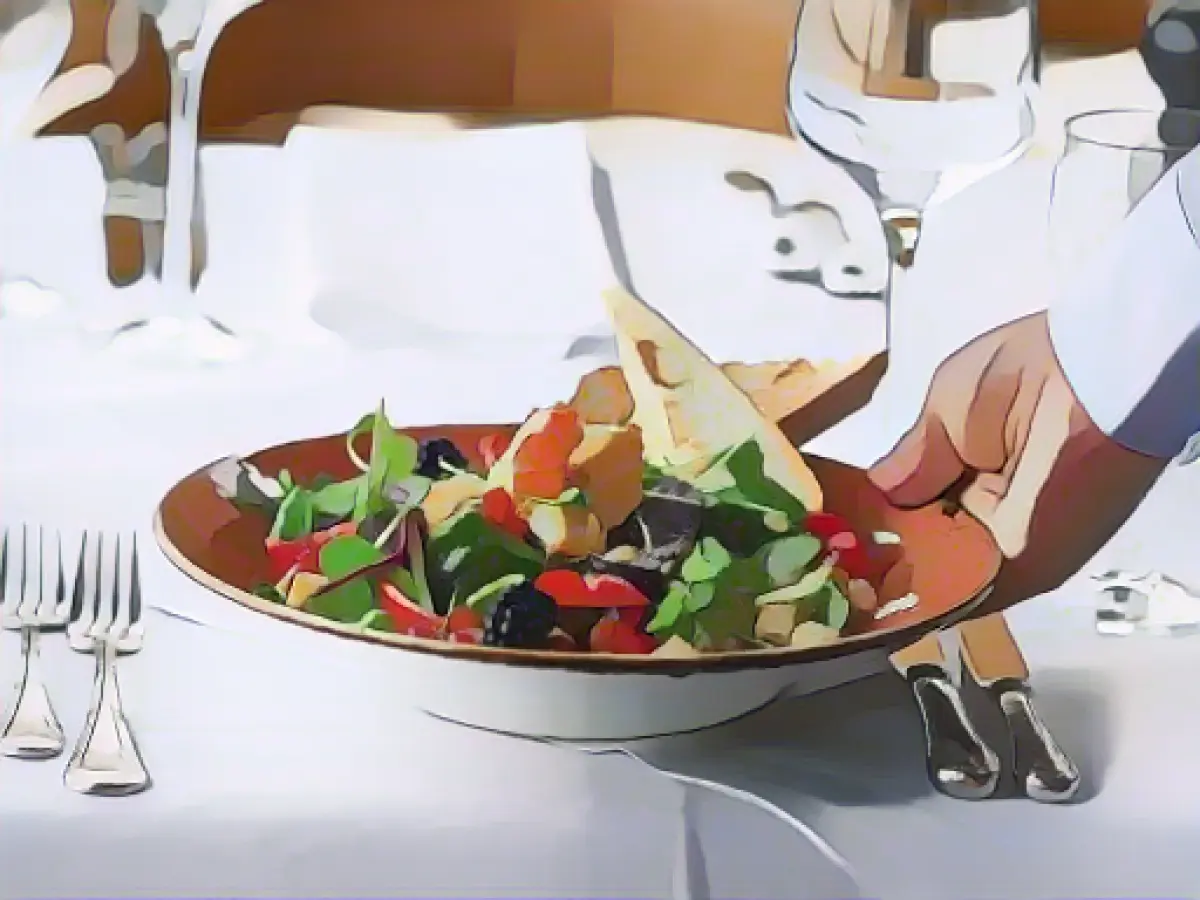Value-added tax in the gastronomy sector rises again
Eating out will become significantly more expensive again next year. According to the chief budgets of the SPD, Greens and FDP, the traffic light coalition has agreed to raise VAT on food in restaurants back to 19 percent from January 1. Currently, 7 percent VAT is charged on food in restaurants. The hotel and restaurant association Dehoga reacted indignantly.
"Instead of creating tax fairness and taxing food uniformly at 7 percent, the tax increase to 19 percent from 1 January 2024 will endanger thousands of livelihoods and provoke the loss of quality of life and gastronomic diversity," said President Guido Zöllick according to a press release. The VAT increase would necessitate significant price increases. "This will hit normal and low earners particularly hard," said Zöllick. He warned of a loss of sales, business closures and job losses - and, as a result, not much higher tax revenue for the state than expected.
Prices have risen by around 20 percent since January 2021
The VAT reduction was introduced in mid-2020, i.e. in the first few months of the coronavirus crisis. For some time, the rate was only 5% due to a further general VAT reduction, but since January 2021 it has been 7% throughout. The reduction for the catering industry was repeatedly extended due to the energy crisis and the high inflation at times, especially for food. The German government hoped that restaurateurs would not immediately pass on the additional costs caused by energy and inflation to customers.
Nevertheless, prices in restaurants, cafés and bars have risen significantly across Germany in the past two years: according to figures from the Federal Statistical Office, "restaurant services" cost around 20 percent more in October than in January 2021. Compared to February 2022, the month in which the war in Ukraine began, the increase is just over 14 percent.
Are restaurateurs passing on the tax increase one-to-one?
A few examples illustrate what the upcoming tax adjustment could effectively mean for menu prices:
- A salad that currently costs 10.70 euros will soon cost 11.90 euros.
- A pasta dish currently costing 15 euros will soon be 16.68 euros.
- The price of a steak, for example, will jump from 25 euros to 27.80 euros.
- For further examples: The prices now listed in the menus will rise by 11.2 percent with the VAT increase.
The prerequisite for the example calculations is that the restaurateurs pass on the tax increase one-to-one to the customers. If they do not do this, they will earn less with every dish sold than at present. As food and energy prices are likely to continue to rise, price increases of more than the 11.2% mentioned are also to be expected.
Corona pandemic still in the industry's bones
For the food service and hospitality industry as a whole (including accommodation), difficult times are therefore likely to continue. The industry had not yet recovered from the coronavirus crisis, with its particularly severe restrictions, when the war in Ukraine broke out and prices suddenly shot up. A few figures show this:
- From January to June, the hospitality industry generated 9.6% more in nominal terms than in the first half of 2019, i.e. before the coronavirus pandemic. If price increases are factored out, the loss in turnover is 10.4%.
- The number of businesses in the hospitality industry was relatively stable before the pandemic and had been between 163,000 and 165,000 for years. Around 27,000 businesses had to close in 2020 and 2021, and the figures for 2022 are still missing. Dehoga fears that a further 12,000 businesses could now be lost as a result of the VAT increase.
The restaurant association was not alone in its criticism of the federal government's plans. At the beginning of November, a total of 17 associations campaigned for 7 percent VAT in the catering sector. These included the German Farmers' Association, the Federal Association of the German Tourism Industry and the Central Association of the German Bakery Trade.
This was of no avail. On Friday, the coalition government said that 7 percent VAT in the catering sector could not be financed at present.
- The rising VAT in the gastronomy sector, due to the proposed increase from 7% to 19% starting January 1, 2024, could significantly impact the hospitality industry during the ongoing Corona pandemic and post-Covid-19 era.
- Despite the challenges posed by the Corona pandemic and the subsequent escalation of taxes, such as the potential increase in VAT for the hospitality industry, several associations, including the German Farmers' Association and the Federal Association of the German Tourism Industry, continue to advocate for maintaining the current 7% VAT rate in the catering sector.
Source: www.dpa.com








